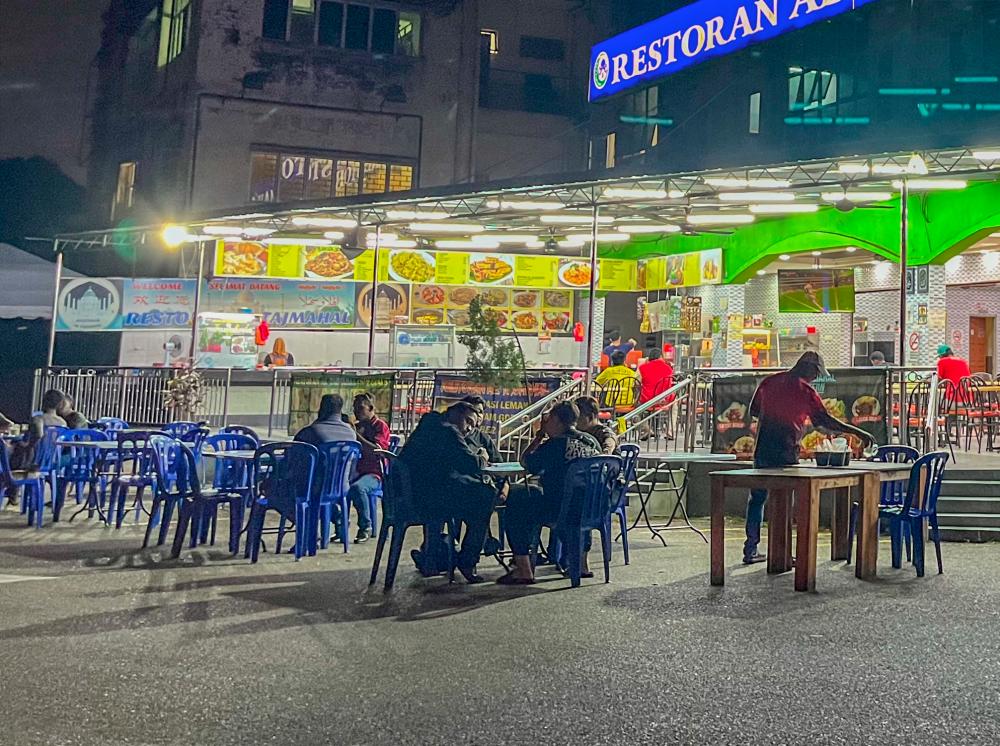PETALING JAYA: The recent call by the Consumers Association of Penang (CAP) to revoke the 24-hour operating licences granted to eateries in a bid to reduce obesity in the country has sparked debate on social media.
While the call was acknowledged by the Health Ministry, its minister Datuk Seri Dr Dzulkefly Ahmad said the suggestion needed to be fine-tuned.
“Stakeholders should be engaged to ensure a thorough understanding of the issue and a clear and effective solution,” he said, adding that a proposal would be prepared and reviewed by the ministry and government for further action.
On April 22, CAP president Mohideen Abdul Kader said limiting the intake of late-night meals would be healthier for Malaysians, who are ranked as “the most obese adults in Southeast Asia”.
“Even though shortening the operating hours for eateries would not completely solve the obesity issue in Malaysia, it would help reduce late-night eating among Malaysians,” he said.
However, Malaysian Muslim Restaurant Owners Association (Presma) president Datuk Jawahar Ali Taib Khan said restricting the operating hours of eateries will not reduce obesity or other health problems.
“Today, restaurants have become a place to socialise after work due to their conducive atmosphere and easy accessibility.
“Presma believes that calls to restrict our operating hours need to be carefully scrutinised from the perspectives of health, social dynamics and the cultural fabric of Malaysian society.”
Jawahar stressed that contrary to blaming 24-hour restaurants for obesity, following healthy lifestyle habits will substantially contribute to healthier outcomes.
“While eating late at night may not be very healthy, it is important to realise that personal lifestyle choices, dietary habits and the level of physical activity also impact one’s health.
“Any measure or policy to improve public health should address a range of factors beyond just the availability of late-night dining options.”
Jawahar said before considering restricting restaurant operating hours, the ministry should consider the specific needs, locations and lifestyles of the community.
“This will ensure that the move meets the requirements of all stakeholders because different regions, urban and rural areas, and demographic groups may have varying needs and preferences.
“Any decision related to operating hours should take into account these differences to ensure they effectively serve the interests of everyone involved.”
Jawahar said banning 24-hour eateries could also result in job losses as such establishments employ a significant number of workers to cater to round-the-clock operations.
“Many people rely on restaurant jobs for their livelihoods and a sudden reduction in operating hours could leave them unemployed.”
He said group meetings, academic discussions and even political meetings take place in certain restaurants late at night, as they are deemed more suitable than during busy daytime hours.
University student Mohd Aiman Hakim Abdullah said banning 24-hour eateries would eliminate a vital space for students to gather and work on university assignments.
“For students who prefer to study late into the night or have schedules that don’t align with traditional business hours, the early closure of these eateries could pose a major inconvenience.”
Mohd Aiman Hakim said mamak restaurants also serve as a social hub for students to unwind and relax after a hectic week of classes.
“The tradition of gathering at mamak restaurants to study or chill out has become deeply ingrained in student culture.
“Beyond providing affordable meals, such restaurants serve as spaces to carry out academic work, have social interactions and relax, contributing significantly to the student experience.”











